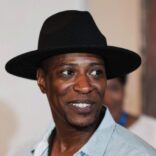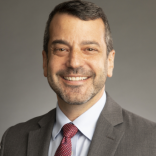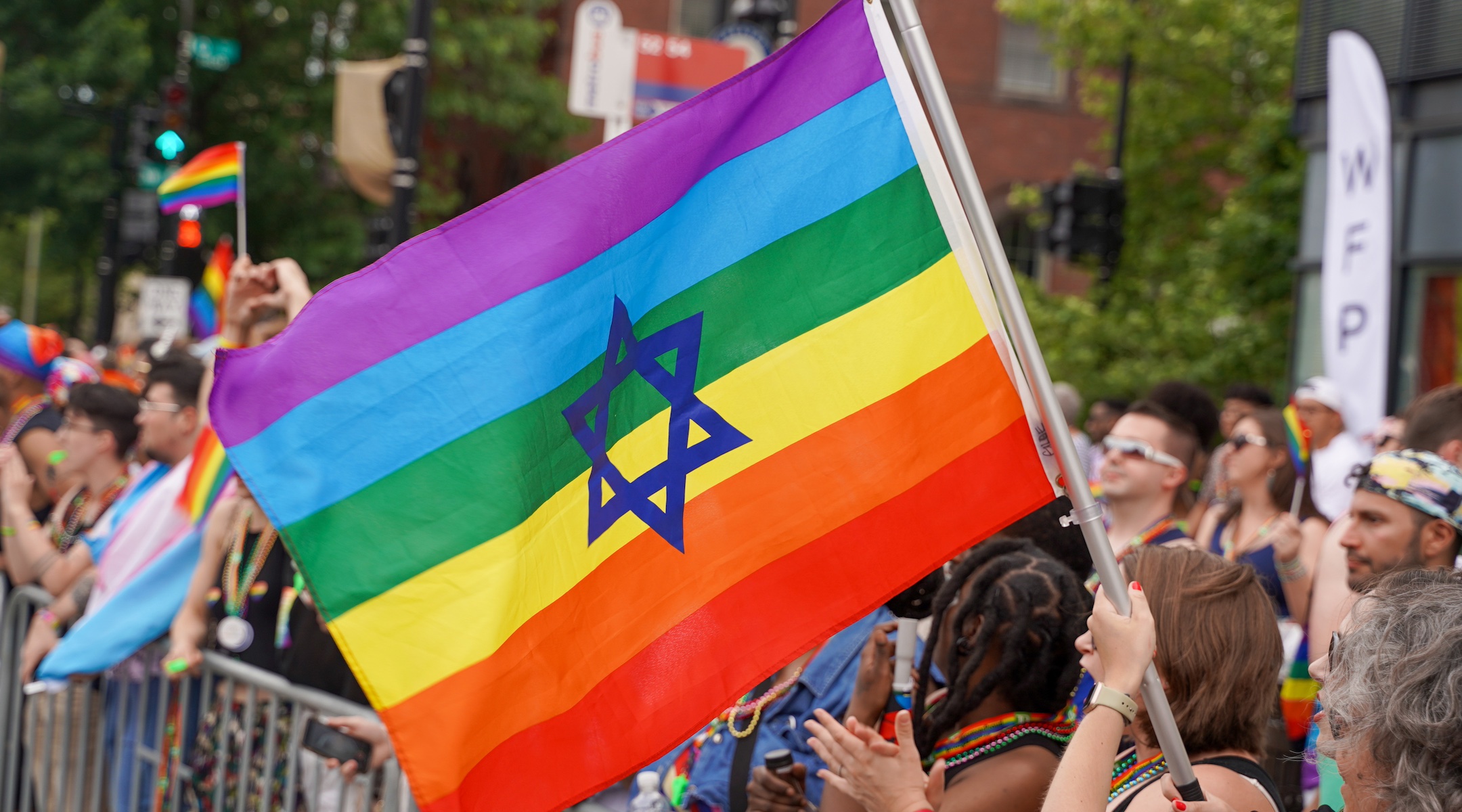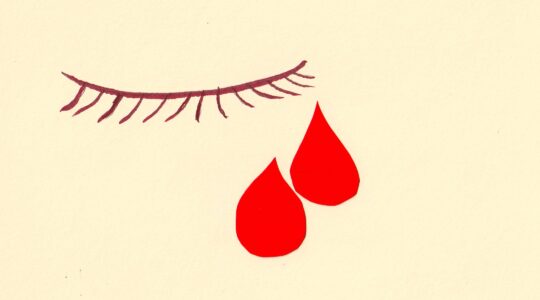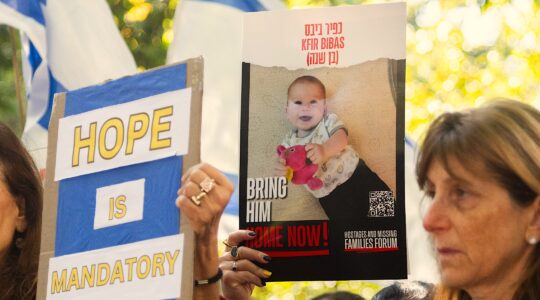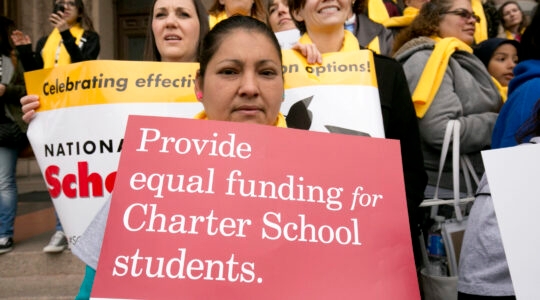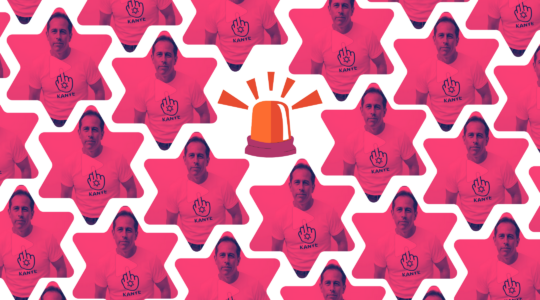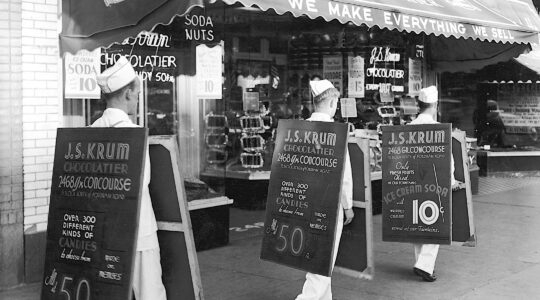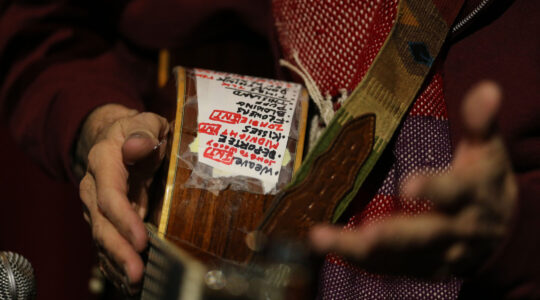Neither of us will forget the first time we marched in a Pride Parade. We stood proudly on the shoulders of LGBTQ+ Jewish giants such as the groundbreaking politician Harvey Milk and marriage equality pathbreaker Edie Windsor, who both helped build the LGBTQ rights movement. We showed up as our full authentic selves.
But today, we’re not certain a young LGBTQ+ Jew would be able to do the same given the hostility and violence that has been directed toward Jews since the war in Gaza. Would one of us — or a future Harvey Milk or Edie Windsor — be heckled and targeted for marching with a Jewish pride flag? Would a young Jew seeking to connect to their LGBTQ+ identity for the first time have their Pride taken away?
In the wake of the terrorist attack by Hamas on Oct. 7 and the war that followed, many of the marches this year will be infused with anti-Israel slogans. The DC Dyke March has taken up the banner “Dykes Against Genocide” as its overarching theme. Floats and banners planned for other parades read, “No pride in genocide.”
Polling data show that the vast majority of U.S. Jews think Israel is an important part of their identity and support its existence as a Jewish state. Most of us roundly reject the use an inflammatory rhetorical slur — that Israel is committing genocide — that has been disproven time and again.
The Jewish community is already being overwhelmed by a tide of antisemitism and anti-Zionism. Between the terrorist attack by Hamas on Oct. 7 and the end of 2023, ADL counted more than 5,000 antisemitic incidents. That is more than occurred throughout the entire previous year.
More than half of these (2,718) included references to Israel, Zionism or Palestine. In other words, Jews here were targeted and harmed for actions taken by leaders in another country. That’s not OK. It’s no wonder that LGBTQ+ Jews feel anxious coming to Pride this year.
Jews have historically been and remain an integral part of the Queer community. In the Pew survey of Jewish Americans in 2020, about 9% of U.S. Jewish adults reveal they identify as LGBTQ+, a larger percentage than the roughly 6% of all American adults who identified as LGBTQ+ in a 2020 Gallup poll.
In a sobering reminder of the continuing vulnerability of those identified with the LGBTQ+ community, the State Department, FBI, and Department of Homeland Security have all issued warnings of a heightened threat of terrorist attacks and other violence at this month’s Pride events. But this year, LGBTQ+ Jews like us are bracing for disruption, harassment, and even the potential for violence, not just from outside actors, but also from some of the parade organizers and our fellow marchers.
Pride parades are public celebrations of queer identity that are intended to express feelings of joy and liberation, all while reinforcing a sense of solidarity with other members of the LGBTQ+ community. With anti-LGBTQ+ legislative initiatives at an all-time high, including 552 pieces of anti-transgender legislation introduced in 2024, this is not a year for anyone to skip Pride. We need inclusive queer communal spaces now more than ever.
Parade organizers need to understand that slogans such as “from the river to the sea,” which some may use as a rallying cry, are heard as threatening and harassing to many in the Jewish community because they imply an ethnic cleansing of Jews living in Israel.
It is also important that parade officials be familiar with such Jewish symbols as a Star of David on a Pride flag, and to refuse, even under pressure, to use litmus tests to exclude any Jews, including pro-Israel Jews, from participating. And they need to have plans in place to deal with attempts to shut down parades, which would in effect take Pride away from all participants and invite showdowns with law enforcement that endanger everyone.
Those who were involved in the 2018 Women’s March, which was roiled by antisemitism, have seen this movie before. This situation is likely to be much worse, given what we have seen on college campuses, in city council meetings, and in many other spheres where Jews have been accused of genocide and Hamas terrorism has been excused and even glorified.
We encourage all the synagogues and other Jewish organizations that are planning to send folks to march, table or otherwise take part in a Pride event to reach out to A Wider Bridge or your Jewish Federation for advice on best practices on how to deal with antisemitic chants, threats and other harassment at a Pride event. Your local Secure Community Initiative can help as well.
After all, most of the Pride parades are sanctioned by local governmental authorities; they receive permits only as a condition of conducting their activities in a way that does not threaten public order and safety. We suggest that Pride attendees concerned about safety consider avoiding unsanctioned events. Given that Pride parades began after the 1969 Stonewall uprising in the wake of persecution by police against queer and trans folk, calling the police to intervene at an unsanctioned march could be seen as threatening to other members of the Queer community.
When Nate first walked through the gates to enter West Hollywood Pride in 1999, it was the first time he felt fully able to be queer, Black and Jewish. When Ethan went to his first Pride at the age of 17, he felt he didn’t need to hide any part of his identity. These experiences set us on the course to lifetimes of both LGBTQ+ and Jewish activism.
We will continue to work closely with elected officials, Pride event organizers, and public safety agencies to ensure that Pride celebrations are welcoming for all and call on all members of the LGBTQ+ community and Jewish community to join us.
JTA has documented Jewish history in real-time for over a century. Keep our journalism strong by joining us in supporting independent, award-winning reporting.
